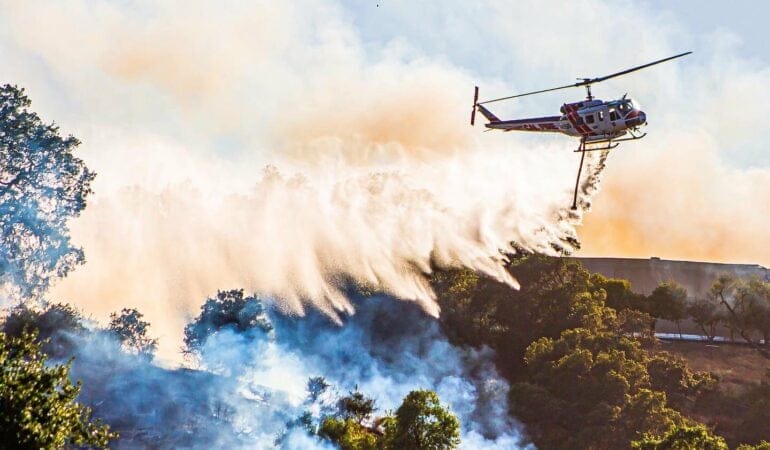
Land Matters Podcast
In this summer of 2021, land is being ravaged. Wildfires burn in the western United States, Canada and elsewhere, destroying whole towns and sending smoke across the continent. Meanwhile, the Amazon rainforest has been scorched so extensively for ranching and agriculture that it now emits more carbon than it absorbs.
These alarming events, and the UN’s latest report on rapidly accelerating climate change, underscore the critical role of land, land management, and land conservation in confronting the climate crisis, says Jim Levitt, director of the International Land Conservation Network at the Lincoln Institute of Land Policy.
Sequestering carbon, mitigating heat islands and disasters, maintaining biodiversity, managing water resources stressed by drought—all are crucial jobs that land performs incredibly well, says Levitt, the guest on the latest episode of the Land Matters podcast. And that is why conserving and better managing forests, wilderness areas, and working landscapes is so important now, he says.
“I don’t want to sugarcoat this—it’s going to be a very challenging task,” he says. “It’s a situation, as many people have said before me, that will require all hands on deck.”
Levitt, author of the book From Walden to Wall Street, details latest and best practices in legal structures and conservation finance to step up land protection globally. Land conservation has been part of the Lincoln Institute’s portfolio for decades, but it has special relevance today in the context of global warming.
As part of the 75th anniversary year, the Lincoln Institute is taking a look at a wide range of programs and how they have evolved over the years—and how they are being applied now to some of the world’s most serious problems.
You can listen to the show and subscribe to Land Matters on Apple Podcasts, Google Podcasts, Spotify, Stitcher, or wherever you listen to podcasts.
Anthony Flint is a senior fellow at the Lincoln Institute of Land Policy, host of the Land Matters podcast, and a contributing editor of Land Lines.
Photograph: California and other states in the U.S. West are enduring longer wildfire seasons, a trend fueled by climate change. Credit: CAL FIRE via Flickr CC BY-NC 2.0.
Related Content
How Land Conservation Reduces Climate Change
Bridging the Divide: Why Integrating Land and Water Planning Is Critical to a Sustainable Future
Sustainably Managed Land and Water Resources, one of six strategic goals
Workshop Report on Biodiversity and Climate Change, a report of the Intergovernmental Science-Policy Platform on Biodiversity and Ecosystem Services and Intergovernmental Panel on Climate Change
